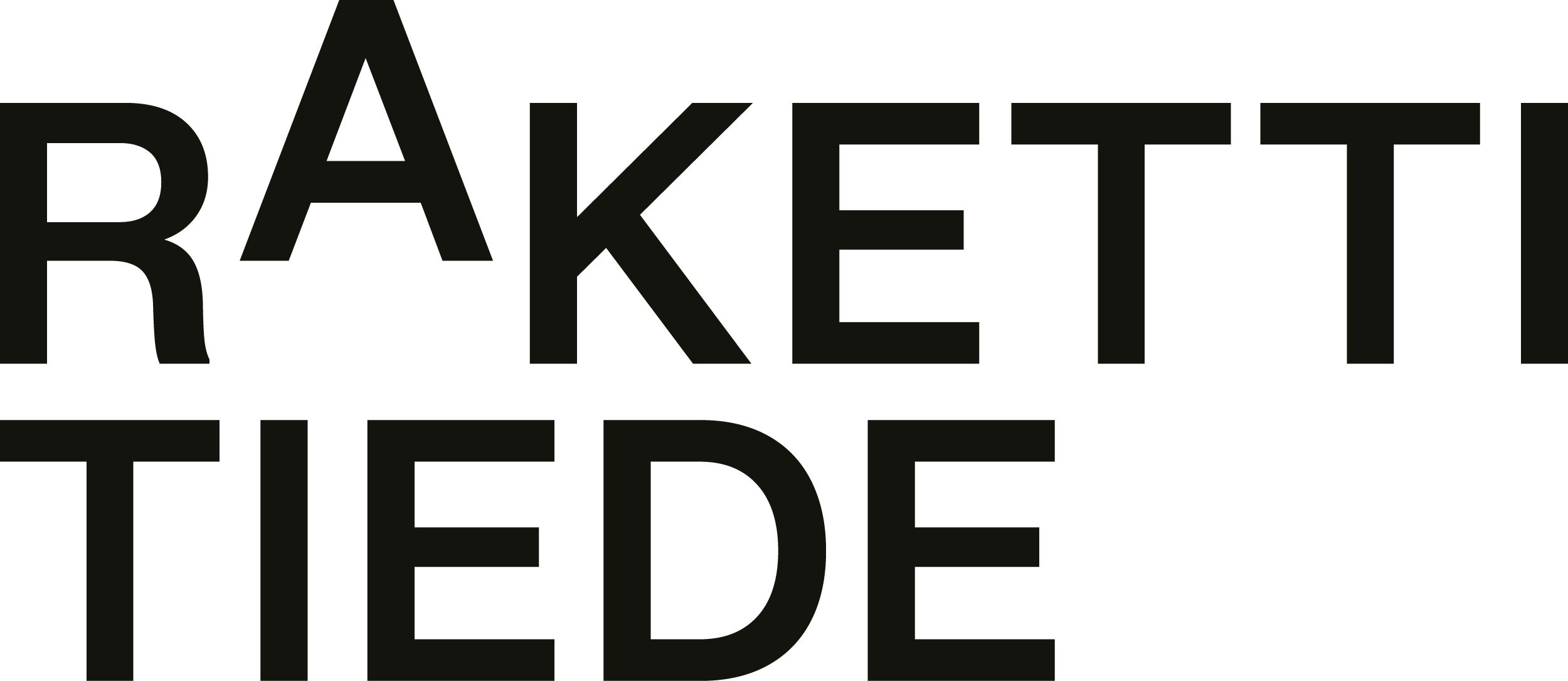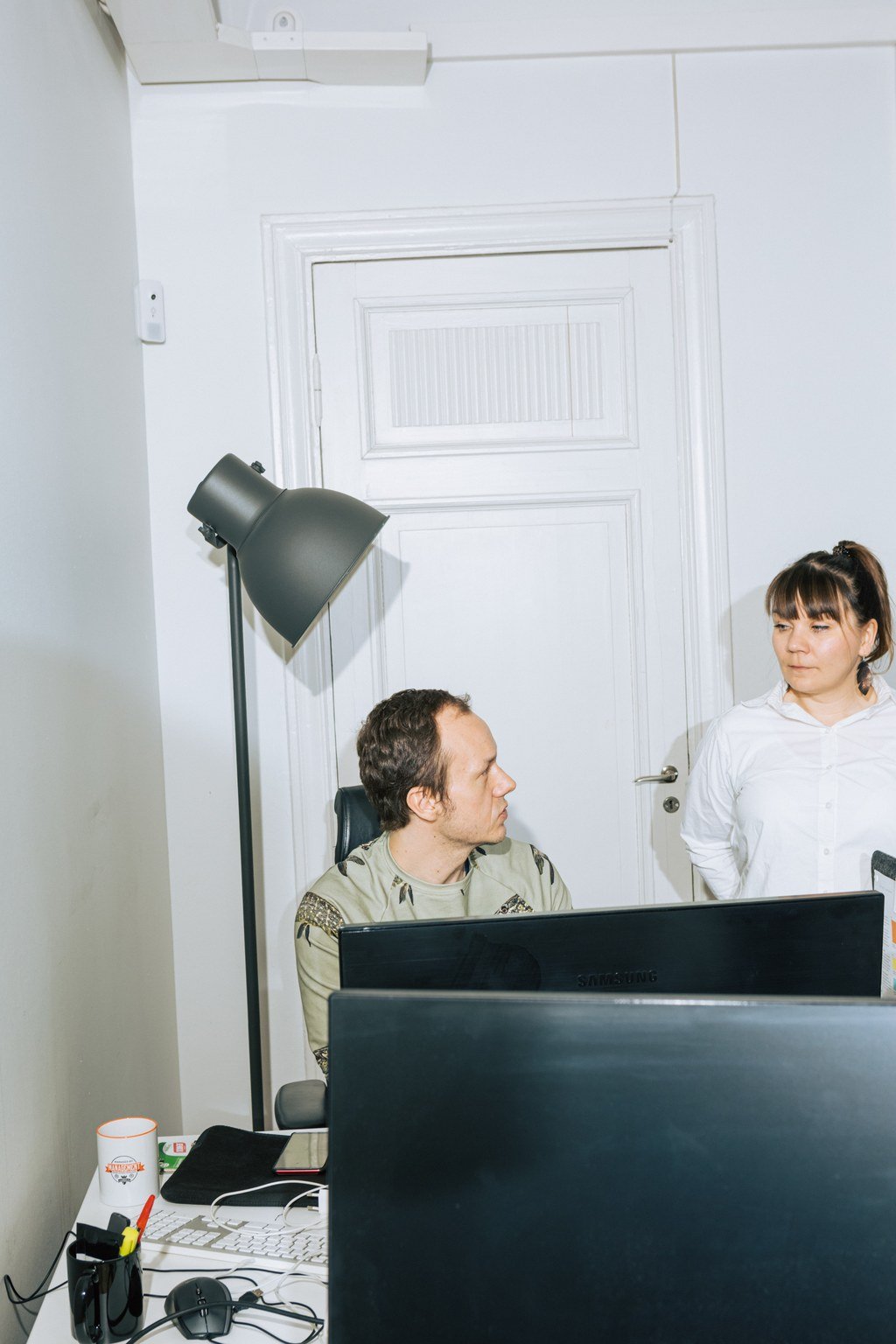Navigating technical interviews: a software developer's guide to success
Technical interviews can be a rollercoaster for a developer, but with a little preparation and some confidence, you can turn the stress dial down a notch.
This article is based on the Mimmit koodaa webinar, where Marko and Viktoriia explore the secrets of technical interviews.
In this blog, we'll explore the technical interviews, taking tips from a recent Mimmit koodaa webinar hosted by Rakettitiede. This blog post is AI-generated from the webinar, with human corrections and edits. (Did you miss the webinar? Watch the recording on YouTube!)
Our guides are Viktoriia Kuznietsova, a seasoned back end developer with front end capabilities, and Marko Saaresto, a founder deeply engaged in Rakettitiede’s interview scene. Together, they unpack what makes or breaks a technical interview.
Understanding technical interviews
Technical interviews are like a rollercoaster: expect quick changes in algorithm difficulty and surprises with data structures. But why such a thrill ride? Companies hold these interviews to test your coding skills, problem-solving abilities, and how well you would fit with their team. It’s not just about finding someone who can code – they’re looking for someone who can think on their feet and fit in with their culture.
Viktoriia Kuznietsova, rocket scientist #54, is a senior software developer, who specializes in web. She has experience both from product companies and consulting. She has been participating in technical interviews at Rakettitiede but also served as a help to validate new joiners on the client side. Viktoriia’s latest venture is diving more deeply into product ownership.
The format can vary wildly – from coding exercises and whiteboard sessions to design challenges and behavioural questions – and it’s all about seeing how well you can apply your knowledge and wit in real-time.
"We want to understand your capability and your skill levels. I'm not sure how typical it is but at Rakettitiede, we try to keep the interview conversational. That means going back and forth exchanging information instead of having a quiz-like set of questions,” Marko says.
Viktoriia stresses the importance of not just participating but standing out. “Preparation is key. Going beyond the basics can show your potential future employer that you're in it to win,” she argues.
Viktoriia and Marko highlighted that a successful candidate doesn't just understand their craft; they communicate effectively. Can you articulate your thought process clearly? Are you able to collaborate with others both under and lacking pressure?
These are the soft skills that often make or break a technical interview.
These interviews are an efficient way for companies to sift through the candidate pool. Employers want to ensure that they invest in the right person – who won’t just handle the current tech stack but will grow and adapt as technology evolves.
Preparation strategies
Marko Saaresto is one of the founders of Rakettitiede and an interview veteran of hundreds of encounters from both sides.
Preparation is your secret tool for making technical interviews easier. Here’s how to gear up and show up, not just prepared, but impressively so.
Embody the qualities of a strong candidate
What sets a strong candidate apart from the rest isn't just the depth of their technical knowledge, but also their soft skills.
Consider these essential qualities:
Knowledge consistent with experience: Ensure your understanding of technologies matches your resume claims. This alignment shows authenticity and competence.
Effective communication: Articulate your thoughts clearly and concisely.
Solid contributions in past jobs: Be ready to discuss specific projects and your contributions. Detailing these shows reliability and the ability to impact positively.
Genuine interest in the job and industry: Demonstrate a proactive interest in the company’s domain and how your career path aligns with it.
Critical thinking: Employers value candidates who can approach problems analytically and offer innovative solutions.
Learner ability: Highlight instances where you adapted and mastered new technologies or methodologies.
Simulate real interview scenarios
Tools like Pramp or Interviewing.io allow you to practise with peers or even anonymous engineers, which can help mimic the pressure of the real thing. It's like playing a friendly match before the final – except the final could land you a lucrative job offer.
“Preparation is key.” – Viktoriia
Prepare to discuss your technical experience
When discussing your experience, be prepared to go into detail about:
Technical decisions and designs: Explain why certain technologies were chosen and the impact of these choices.
Challenges and solutions: Talk about significant challenges you faced and how you addressed them. This can showcase your problem-solving skills.
Continuous learning: Discuss how you keep your skills up-to-date with industry trends and technologies. This demonstrates your commitment to professional growth.
Strong candidates stand out not only for their technical knowledge but also for their soft skills.
Inquire about the interview beforehand
Understanding the format of the interview can significantly aid your preparation. Whether it's a technical discussion, a coding task, or a live coding session, knowing what to expect allows you to prepare accordingly and show up as the best version of yourself.
Know the company
Every company has its quirks, and knowing them can give you an edge.
Research the company’s tech stack, recent projects, and company culture. Understanding what makes the company tick can help you tailor your responses to resonate with the interviewer’s expectations.
"You don't have to go in-depth and start stalking every board member of the company but you should know what the company does and also before the interview refresh yourself so you don't completely come off as a fully ignorant person,” Viktoriia says.
During the interview
Now that you’ve prepared like a champion, it’s showtime.
Interviewers aim to understand candidates' capabilities and skill levels rather than simply testing memorization. Efficient communication, active listening, and thoughtful responses are valued. Candidates are encouraged to take notes during the interview to aid in understanding and retention of information.
“We are not expecting you to remember some basics, but for example, if we ask about some technology we're not expecting a school answer or just going through properties or methods. We are interested in how you understand the technology,” Marko says.
“We are interested in how you understand the technology.” – Marko
Communicate clearly and concisely
Clarity is king. When asked a question, take a moment to organize your thoughts before diving in. If you need a second to think, say so. This shows you’re thoughtful and not just trying to fill the silence with tech buzzwords. Consider your answers as mini-presentations: be clear, concise, and structured.
Articulate your thought process
Explain your problem-solving process. This shows both your technical skills and communication ability.
Don’t just solve the problem – walk the interviewer through your problem-solving process. Showcasing your thought process demonstrates not only your technical proficiency but also your communication skills.
Providing stronger, more personalized answers to technical questions is encouraged. Rather than giving textbook responses, candidates should draw from their personal experiences and reflections. This can involve discussing personal preferences, experiences with different technologies, and insights into programming languages or methodologies.
Handle curveballs with grace
Sometimes, interview questions can come out of left field. If you don’t know the answer, it’s okay to admit it – but also show how you’d find out. Saying "I don’t know, but I’d start by..." can be a powerful way to demonstrate your problem-solving skills. It's better to admit ignorance and show curiosity than to waffle through an incorrect answer.
Show enthusiasm and curiosity
Ask questions about the role, the team, and the company. This shows that you’re not just looking for any job; you’re looking for this job.
Overall, the interview is viewed as a two-way exchange of information, where both parties seek to understand each other. Candidates who demonstrate effective communication, honesty, curiosity, and a willingness to learn are likely to succeed in technical interviews.
It’s good to ask questions, but if stuff is explained well there is no need to. The questions can be directed to the interviewers vs the company. It’s a signal that a candidate cares where they work.
Home task or coding during the interview
Candidates may encounter various technical challenges during interviews, such as home tasks or coding exercises. It's crucial to focus on meeting the task requirements rather than overcomplicating or overachieving.
The code should be simple, clean, preferably tested and with documentation.
Clean, well-documented code is preferred, and candidates should be prepared to justify their decisions during discussions. Tools like GitHub are often used, and candidates should be proficient in explaining their code and reasoning.
“It's about demonstrating the way you think.” – Viktoriia
Have reasoning on why something works and why choices were made: using AI is a great way to learn, but you have to have control and understanding.
Live coding sessions are meant to assess communication skills and problem-solving abilities rather than causing stress. Asking follow-up questions and demonstrating clear thinking are key during these sessions.
"It's about demonstrating the way you think, the way you approach the problem. It's not about how many function names you know. How can you think through it? How can you justify the decisions you've made while doing this task?" Viktoriia reminds.
Post-interview
Don’t hesitate to ask for feedback.
After you've dazzled in the interview, the journey isn't quite over yet. Here's how to leave a lasting impression and handle the aftermath of your technical interview.
Follow up gracefully
Sending a thank-you email isn't just polite; it's strategic. Customize your message to reflect a memorable moment from the interview or reiterate how your skills align with the company's needs.
Evaluate and negotiate offers
If an offer lands in your lap, take the time to assess it thoroughly. Don't just jump at the first number thrown your way. Consider the total compensation package, the work-life balance, and the career growth opportunities. If something feels off, remember that negotiation is part of the game. It’s like haggling at a market – you won't get what you don't ask for.
Learn from each experience
Not every interview will end with an offer, but each is a learning opportunity. If rejected, don’t hesitate to ask for feedback. This insight can be gold for your next interview. Treat it like a review session for your performance – every bit helps for the next round.
Be yourself, be confident
As we wrap up our guide to acing technical interviews, remember: technical skills get your foot in the door, but your personality and communication skills invite you in to stay.
Approach each interview as an opportunity not just to showcase your technical prowess, but also to connect on a human level.
Be yourself, be confident: you’re called to the interview for a reason!
This article is based on the Mimmit koodaa webinar, where Marko and Viktoriia explore the secrets of technical interviews. The recording covers universal tech interview topics that will help you, no matter which tools and languages you know. The webinar is hosted from a web developer perspective, but everyone can benefit from boosting their confidence and picking up some tools to better succeed in technical interviews.
Watch the recording on YouTube!
Read more:
Rakettitiede’s recruitment process is (relatively) painless








